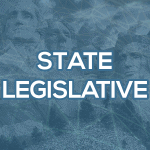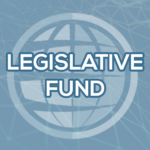We mailed and emailed you our Fall magazine earlier this month. If you haven’t read it yet, be sure to explore this article-packed issue with the latest insights on the industry.
Thank you to our magazine advertisers for their partnership: Cornerstone Support, Inc., FLOCK Specialty Finance, PaymentVision, TransUnion and Womble Bond Dickinson.

RMAI has had a busy month on the federal level. In September, a team from the RMAI Board joined with our federal consultant, K&L Gates, for two days of meetings in Washington, DC. With so many meetings, we broke into two teams. We met with both Republicans and Democrats on Senate and House Banking, Financial Services, and Finance Committees. The focus right now is on the U.S. Supreme Court where the justices are deciding whether the current CFPB funding mechanism is constitutional. Congressional action may be required after that decision, which most likely will not be issued until Spring 2024.
The good news from Capitol Hill is that no issues related to the receivables industry are being discussed. While this does not mean that harmful legislation has not been introduced, what it means is that legislation was introduced for “messaging” purposes rather than adoption.
Presently, however, all issues on Capitol Hill are on hold as the House of Representatives looks to identify a new Speaker. The challenge for the Republicans, who maintain just a nine-seat majority in the chamber, is finding an individual who will satisfy the members in the right-leaning Freedom Caucus while not alienating more centrist or traditional Republicans, as either side could prevent a candidate from moving forward.
RMAI and its Federal Committee are currently reviewing the proposed rule to Fair Credit Reporting Act (FCRA) that is being proposed by the Consumer Financial Protection Bureau (CFPB). While it is currently in the Small Business Regulatory Enforcement Fairness Act (SBREFA) review process where it is getting input from the small business community, we fully expect the rule to move forward in a substantially similar form for public comment. RMAI will be prepared to respond.
RMAI monitors, tracks, and responds to legislative and regulatory activity in all 50 states as the need arises. Backed by RMAI’s State Legislative Committee and a team of state lobbyists, RMAI educates legislators and regulators about the industry and the negative impacts or unintended consequences a bill would have on businesses and consumers. If you have an interest in volunteering in RMAI’s grassroots advocacy efforts, please contact RMAI General Counsel David Reid at (916) 779-2492 or dreid@rmaintl.org. The following is a sample of the legislative activity over the prior month that has direct impact on the industry:
California AB 1414 [Chapter 688 of the Laws of 2023] Effective: January 1, 2024 – This law provides that in actions for the collection of consumer debt, common counts may not be used. This effectively will force all litigation through a contract theory for litigation. Common counts include book account and account stated, among other claims. For purposes of this section, “consumer debt” means any obligation or alleged obligation, incurred on or after July 1, 2024, of a consumer to pay money arising out of a transaction in which the money, property, insurance, or services that are the subject of the transaction are primarily for personal, family, or household purposes and where the obligation to pay appears on the face of a note or in a written contract. [RMAI and an industry coalition had actively opposed this legislation.]
Michigan SB 408 – This bill would among other things: (1) increase the garnishment exemption from 30x federal minimum wage to 80x state minimum wage; (2) limit garnishment to 10% of earnings in excess of the garnishment exemption and then 15% of any earnings over $1,200; (3) create a wild card exemption up to $17,000; (4) eliminate all tax garnishments for judgments obtained pursuant to a “consumer debt”; (5) increase the homestead exemptions from $35,000 to $250,000 ($350,000 for seniors and those with disabilities); and (6) increase various property exemptions including for automobiles, household goods, tools of the trade, agricultural, etc. [RMAI and an industry coalition are vigorously opposing this bill. RMAI has retained a state lobbyist.]
North Carolina SB 477 [Session Law 130] Effective: September 29, 2023 – This law (see Part VII of the bill) eliminates the pre-charge-off itemization requirement when seeking a judicial action for credit card debt that has been charged-off. The pre-charge-off itemization requirement was adopted in 2009. With this statutory change, if a credit card has been charged-off, the plaintiff will only have to provide the charge-off balance and an itemization of the debt post charge-off. The law will also require the plaintiff to produce the last 12 monthly statements sent to the consumer prior to charge-off. For accounts less than one year old prior to charge-off, every statement sent to the consumer prior to charge-off must be provided. [Part VII was a last-minute addition to this bill prior to passage. The requirement for 12 monthly statements was not expected and may cause issues with some debt buyers. Members are encouraged to share this statutory change with those employees responsible for account acquisitions and litigation.]

Debt Buyer Found Not Liable Under NJ Consumer Fraud Act for Failing to Obtain License
Woo-Padva v. Midland Funding, No. A-1996-21, 2023 N.J. Super. Unpub. LEXIS 1550 (Super. Ct. App. Div. Sep. 21, 2023)
After a consumer defaulted on two credit-card accounts with the original creditors, the consumer’s accounts were charged-off and sold to a debt buyer which then placed the accounts with a debt collection law firm. The consumer paid one of the debts in full to the law firm and no other entity sought to collect that account. On the other account the law firm sued the consumer and the parties entered into a consent judgment pursuant to which the consumer made payments on the account.
Over three and one half years later, the consumer filed suit against the debt buyer based on it not being licensed under the New Jersey Consumer Finance Licensing Act (CFLA) and sought a declaratory judgment that her consent judgment was “void.” The consumer also sought damages under the New Jersey Consumer Fraud Act (NJCFA) and unjust enrichment, again based on collecting the accounts without having the CFLA license. The consumer’s complaint was filed on behalf of a putative class and sought damages, including disgorgement of all funds collected from proposed class members.
Regarding the account that had the consent judgment, the trial court previously found that res judicata and the entire controversy doctrine barred the consumer’s claims. However, since the other account was settled without a judgment, neither res judicata nor the entire controversy doctrine applied.
The trial court granted summary judgment to the debt buyer on all the consumer’s claims, finding that the debt buyer was not a consumer lender and thus did not require the CFLA license. The trial court also held that the consumer’s claims were not covered by the NJCFA because the debt buyer did not offer to sell the consumer any services or merchandise and because she had not suffered the requisite “ascertainable loss.”
On appeal, the New Jersey Appellate Division affirmed the CFLA dismissal but for reasons other than those found by the trial court. The Court explained that the CFLA does not provide a private right of action and the consumer could not use the Uniform Declaratory Judgments Act to circumvent the lack of a private right of action. Instead, violations of the CFLA are enforceable only by the Commissioner of Banking and Insurance.
Regarding the NJCFA, the Appellate Division agreed with the trial court that the statute did not apply to the debt buyer. To state a claim under the NJCFA, the offending conduct must be “in connection with the sale or advertisement of merchandise and real estate.” The court noted that the New Jersey Supreme Court previously held that the NJCFA applies to “the provision of credit.”
Ultimately, the offending misrepresentation must be material to the transaction and “made to induce the buyer to make the purchase.” There was no allegation that the debt buyer sold credit or offered anything to the consumer. Instead, the offending conduct was misrepresenting “that it had the legal right to collect on the account when it lacked the proper license to do so.” However, since this conduct was not made in connection with the origination of the debt, it could not constitute a violation of the NJCFA.
In addition, the Appellate Division found that the consumer did not sustain an ascertainable loss, another prerequisite to recovery under the NJCFA. Here, the consumer acknowledged that she owed the debt to the original creditor and her payment of that debt to the debt buyer did not constitute an ascertainable loss.
Third Circuit Holds FCRA Furnishers Must Investigate Indirect Disputes; No Discretion to Deem Them Frivolous or Irrelevant
Ingram v. Experian Info. Sols., Inc., No. 21-2430, 2023 U.S. App. LEXIS 25991 (3d Cir. Oct. 2, 2023)
A consumer alleged an account had been fraudulently opened in his name with a telecom company and filed a dispute directly with the company (a “direct dispute”) which had previously reported the account information to a credit reporting agency (CRA). The company asked the consumer to provide numerous documents to support his claim, but the consumer did not respond. The company thus deemed the dispute frivolous and “ultimately did not decide whether the account was opened fraudulently.” The company then referred the account to a debt collector which reported the debt to the CRA as delinquent.
The consumer next filed a dispute with the CRA (an “indirect dispute”) which forwarded notice of the dispute to the collector. Upon receipt, the collector only “confirmed the account name and Social Security number but did not further investigate the matter as to fraud.” The consumer alleged that discovery revealed the “investigation” of the dispute lasted only thirteen seconds. The collector continued to “erroneously report” the account tradeline balance to the CRA.
The consumer filed suit claiming the collector violated the Fair Credit Reporting Act (FCRA) by not conducting a reasonable investigation of the indirect dispute. The trial court, in granting the collector’s motion for summary judgement, “rejected [the consumer’s] claim that his indirect dispute was inadequately investigated by the furnisher in this case, after concluding that it had no duty to investigate because [the consumer] did not provide enough documentation to inform a ‘bona fide,’ nonfrivolous dispute.” The consumer appealed.
On appeal, the U.S. Court of Appeals for the Third Circuit described the issue before it as “whether we may imply into the FCRA an exception allowing a furnisher discretion to refuse to investigate an indirect dispute it deems frivolous or irrelevant, as the District Court did.”
The Court explained that under the FCRA, when a direct dispute is made to a furnisher, the furnisher “has a duty to investigate the matter and take appropriate remedial action” unless it finds as an initial matter that the dispute is frivolous or irrelevant.
On the other hand, when an indirect dispute is made to a CRA, the CRA must notify the furnisher and, assuming the CRA “does not reasonably determine as a threshold matter that the dispute is frivolous or irrelevant, the [CRA] must perform an investigation into the disputed information and update or delete it as necessary. Upon receipt of notice from the [CRA], the furnisher must also investigate the dispute and take appropriate action.”
The Court summarized: “The statute is structured such that, in these parallel provisions, the party that first receives the dispute from the consumer retains explicit discretion to discontinue its investigation should the consumer’s dispute appear frivolous or irrelevant,” and receipt of an indirect dispute “charges furnishers with a duty to investigate indirect disputes forwarded to them by the {CRAs] . . .”
The collector argued that because the consumer “first filed a direct dispute with [the telecom company] and then did not follow up with the requested documentation, he should not be allowed to cure this failure by later . . . filing an indirect dispute with [the collector] through [the CRA].” The Court disagreed:
Unfortunately for [the collector], filing an indirect dispute is not quite the “back door” for consumers that it suggests, as the statute already provides for independent, firstline review of an indirect dispute by the consumer reporting agency. 15 U.S.C. § 1681i(a)(3)(A). Under Section 1681i(a)(3)(A), the agency is permitted to request additional information from the consumer, where necessary, before completing its own investigation—in the same way as a furnisher reviewing a direct dispute. See id.; § 1681s-2(a)(8)(F)(i). As such, reading the statute to allow furnishers to conduct what will often be a second review for frivolousness would only serve to create an additional hurdle for consumers filing indirect disputes when compared to direct disputes.
Thus, the Court concluded “that [the collector] indeed had a duty to investigate [the consumer’s] indirect complaint, regardless of [the consumer’s] purported failure to supplement his dispute with additional information, or the fact that he had previously submitted a direct dispute with [the telecom company] that was deemed frivolous.”
Therefore, the Third Circuit reversed the trial court’s ruling and remanded the matter for a determination as to whether the collector’s investigation of the indirect dispute was reasonable.

Check Out RMAI’s New Advocacy in Action Photo Page on the RMAI Website
RMAI recently added a new Advocacy in Action photo page to our RMAI Blog. Take a look and SEE what our team of staff, consultants, board members, and members have accomplished this year, and where your donations go.
Donate to the Legislative Fund with Your 2024 Membership Renewal
2024 membership renewals were distributed on October 2nd and are due by December 31, 2023. This is always a great time and opportunity to donate to RMAI’s Legislative Fund along with paying your membership dues. RMAI has been at the forefront of many state and federal issues in 2023, and your donations help us to continue our advocacy efforts. Please consider donating any amount. To read more about RMAI’s recent advocacy efforts, please refer to the Federal and State Update sections of the RMAI Insights magazine.
RMAI actively monitors and responds to state and federal measures affecting how our members do business. Your contributions to the Legislative Fund extend the reach of RMAI’s advocacy across the country where and when needed. Read more about the Legislative Fund.

Get Your Continuing Education Credits at the 2024 Annual Conference
The 2024 Annual Conference will be offering 15 credits of education that can qualify for either your individual certification continuing education (CE) or your continuing legal education (CLE). Register now for the Annual Conference while we are in Early Bird pricing through December 14, 2023.
Upcoming Webinars – Complimentary Registration for RMAI Members
Register now for our November 14th webinar on Diversity, Equity & Inclusion (DEI) presented by volunteers from the DEI Committee. More details to come. Please note that this webinar will qualify for the CRCP requirement to earn one (1) credit from identifying and avoiding discriminatory collection practices.
Recorded Webinars
If you missed our September 27th webinar, Fintech Market Trends or our October 4th webinar, What Drives the Auto Finance Asset Class, sponsored by Quantum3 Group, you can register for the recordings on our Online Education webpage which will be available for one (1) year.
Click here for more information on our live and recorded educational webinars.

Congratulations to our new and renewed Certified Receivables Compliance Professionals (CRCP) and new and renewed Certified Receivables Business (CRB).
CRCP NEW
Elizabeth Coe, AKCP, LLC
Mario Dominguez, AJLM Receivables
Shaun Ertischek, Cascade Receivables Management
CRCP RENEWALS
David Hameroff, Kino Financial Co. LLC
Ross Kanan, Superlative RM
Angela Kresila, Troy Capital
Lisa McCormick, Converging Capital, LLC
Ginny Rodriguez, Plaza Services, LLC
Rance Willey, Troy Capital
CRB NEW
Law Office of James R. Vaughan
CRB RENEWAL
Consumer Adjustment Company, Inc. (CACI)
Spire Recovery Solutions
EFFECTIVE MARCH 1, 2024: PRE-CERTIFICATION AUDIT IS REQUIRED FOR DEBT BUYERS, COLLECTION AGENCIES & COLLECTION LAW FIRMS PURSUING CERTIFICATION
Effective March 1, 2024, the RMAI Receivables Management Certification Program will require all debt buyer, collection agency, and collection law firm members to undergo a pre-certification audit prior to submitting their application for business certification. Currently, the only audit requirement is a full compliance audit which is conducted at the mid-way point of the three-year certification.
Take the opportunity NOW to get your business certified and avoid the extra expense of a pre-certification audit. Please contact Director of Certification & Education, Shannon Parod at sparod@rmaintl.org to get more information.
View all certified businesses and vendors.
View all certified individuals.
View educational requirements for certified individuals.
For questions about certification, contact RMAI at (916) 482-2462 or email cert@rmaintl.org.

It’s Time to Renew for 2024
Thank you for your RMAI membership. We look forward to continuing to provide you with ongoing valuable networking opportunities, timely education, helpful resources, and comprehensive and robust state and federal advocacy! If you have not yet renewed your membership for 2024, we encourage you to do so, to continue to enjoy the benefits of being a part of RMAI – including discounted registration rates for Annual Conference – registration is open!
RMAI mailed and emailed dues invoices earlier this month. To pay your invoice, please login here. If you have any questions, please call the RMAI office toll-free at (855) 562-9863 or at (916) 482-2462 or email membership@rmaintl.org.
Advertise with RMAI
The best strategy to reach buyers and potential business partners in the receivables management industry is an integrated advertising program that combines the best of print, online and event communications. Advertising in RMAI’s media channels—website, RMAI Insights, Digital Dispatch, RMAI Update e-newsletter, or sponsored social media and email—gives you broad access to RMAI members creating awareness for your brand and new business opportunities. Contact Communications Manager Cheryl Nelson for details.
Welcome, New Members
AJLM Receivables |CA
Number Sentry LLC |GA
For a complete list of RMAI members, login to check out the Member Directory.


RMAI’s leadership cultivates relationships within the receivables management industry to expand business opportunities for members.
2024 RMAI Annual Conference | February 5-8, 2024
Please note, the RMAI offices will be closed Friday, November 10th, in observance of Veterans Day.

Thank you to our October 1, 2022 through October 7, 2023 Legislative Fund Contributors!
Diamond $25,000
Cavalry Investments, LLC
Crown Asset Management, LLC
Financial Recovery Services, Inc.
Midland Credit Management
Resurgent Holdings, LLC
Velocity Portfolio Group, Inc.
Titanium $15,000
Second Round, LP
TRAKAmerica
Platinum $10,000
Blitt and Gaines, P.C.
Cascade365 Family of Companies
EverChain
Garnet Capital Advisors, LLC
InvestiNet, LLC
Unifund CCR LLC
Gold $7,500
Pressler, Felt and Warshaw, LLP
Rausch Sturm, LLP
Silver $5,000
Andreu, Palma, Lavin & Solis, PLLC
Digital Recognition Network
FMA Alliance, Ltd
Klima, Peters & Daly, P.A.
National Loan Exchange, Inc.
Pharus Funding, LLC
Provana, LLC
Ragan & Ragan, PC
Velo Law Office
Bronze $2,500
Absolute Resolutions Corp.
Acctcorp International, Inc.
Central Portfolio Control, Inc
DebtNext Software, LLC
Invenio Financial, a Phillips & Cohen Associates company
Kredit Financial Inc.
RAzOR Capital, LLC
Resurgence Capital, LLC
Suttell & Hammer
Tobin & Marohn
Troutman Pepper
Brass $1,000
Action Collection Agencies, Inc.
Actuate Law, LLC
Advancial Federal Credit Union
AKCP LLC
Aldridge Pite Haan, LLP
Arbeit
Arko Consulting LLC
Balbec Capital
Barron & Newburger, P.C.
Beam Software
Bread Financial
Butler & Associates, P.A.
C & E Acquisition Group, LLC
C&R Software
Call Center Services International
Capio
CBK, Inc.
CCMR3
Cedar Holdings International Inc. DBA Cedar Financial
Collection Attorneys USA LLC
Commercial Credit Group Inc.
Commercial Funding Inc.
ConServe
Convergence Acquisitions, LLC
Cornerstone Licensing Services
CSS Impact
Dobberstein Law Firm, LLC
Epicenter Technologies Pvt. Ltd.
First Financial Portfolio Services, LLC dba FFAM360 Capital
FLOCK Specialty Finance
G. Reynolds Sims & Associates, P.C.
Genesis Recovery Services
George Brown Associates, Inc.
Glass Mountain Capital, LLC
Gordon, Aylworth & Tami, P.C.
Guglielmo & Associates, PLLC
Halsted Financial Services, LLC
Harvest Strategy Group, Inc.
Hinshaw & Culbertson
Hunt & Henriques, LLP
Huntington Debt Holding LLC
Imagined.Cloud LLC
InDebted
International Debt Buying Consultants, LLC
Investment Retrievers, Inc.
January Technologies, Inc.
Jefferson Capital Systems, LLC
Kino Financial Co., LLC
Kota Business Solutions LLC
Law Office of James R. Vaughan, P.C.
Law Offices of Goldberg & Oriel
Levy & Associates, LLC
Lockhart, Morris & Montgomery, Inc.
Mandarich Law Group LLP
Markoff Law LLC
Metacorp, LLC
Mountain Peak Law Group, PC
National Debt Holdings, LLC
Nelson & Kennard
NRA Group, LLC
Nuvei
PCI Group Inc.
Phin Solutions, LLC
Portnoy Schneck, LLC
Premier Forty Financial, LLC
Prodigal
Quall Cardot, LLP
Quantum3 Group, LLC
Resource Management Services, Inc.
RevSpring
Robinson Hoover & Fudge, PLLC
SAM – Solutions for Account Management
Scott & Associates, PC
Sequium Asset Solutions, LLC
SimpleCertifiedMail.com
Skit.ai
Slovin & Associates
Stenger & Stenger P.C.
Stone, Higgs & Drexler
T & I Enterprises, LLC
TEC Services Group, Inc.
The Cadle Company
Troy Capital, LLC
TrueAccord
Universal Fidelity LP
US Mortgage Resolution, LLC
USASF Servicing, LLC
Venable LLP
VeriFacts, LLC.
Vertican Technologies, Inc.
VoApps, Inc.
Other
Alliance Credit Services, Inc.
ARM Compliance Business Solutions LLC
Atlas Acquisitions
Bedard Law Group, P.C.
CMS Services
Converging Capital, LLC
Convoke, Inc.
Credit Corp Solutions Inc.
Credit Management Corporation
D1AL
HS Financial Group, LLC
Kirschenbaum & Phillips, P.C.
Law Offices of Steven Cohen LLC
London & London
Martin Lyons Watts Morgan PLLC
MauriceWutscher LLP
Miller and Steeno, P.C.
Moss & Barnett, P.A.
National Recovery Solutions, LLC
POM Recoveries, Inc.
Portfolio Recovery Associates, LLC
Poser Investments, Inc.
ProVest LLC
Receivables Management Association International
Sandia Resolution Company, LLC
SCJ Commercial Financial Services
Smith Debnam Narron Drake Saintsing & Myers, LLP
Solutions by Text
Sonnek & Goldblatt, Ltd.
The Oakes Law Firm, LLC
Vargo & Janson, P.C.
Venandi Systems, LLC
WebRecon LLC
Womble Bond Dickinson
















